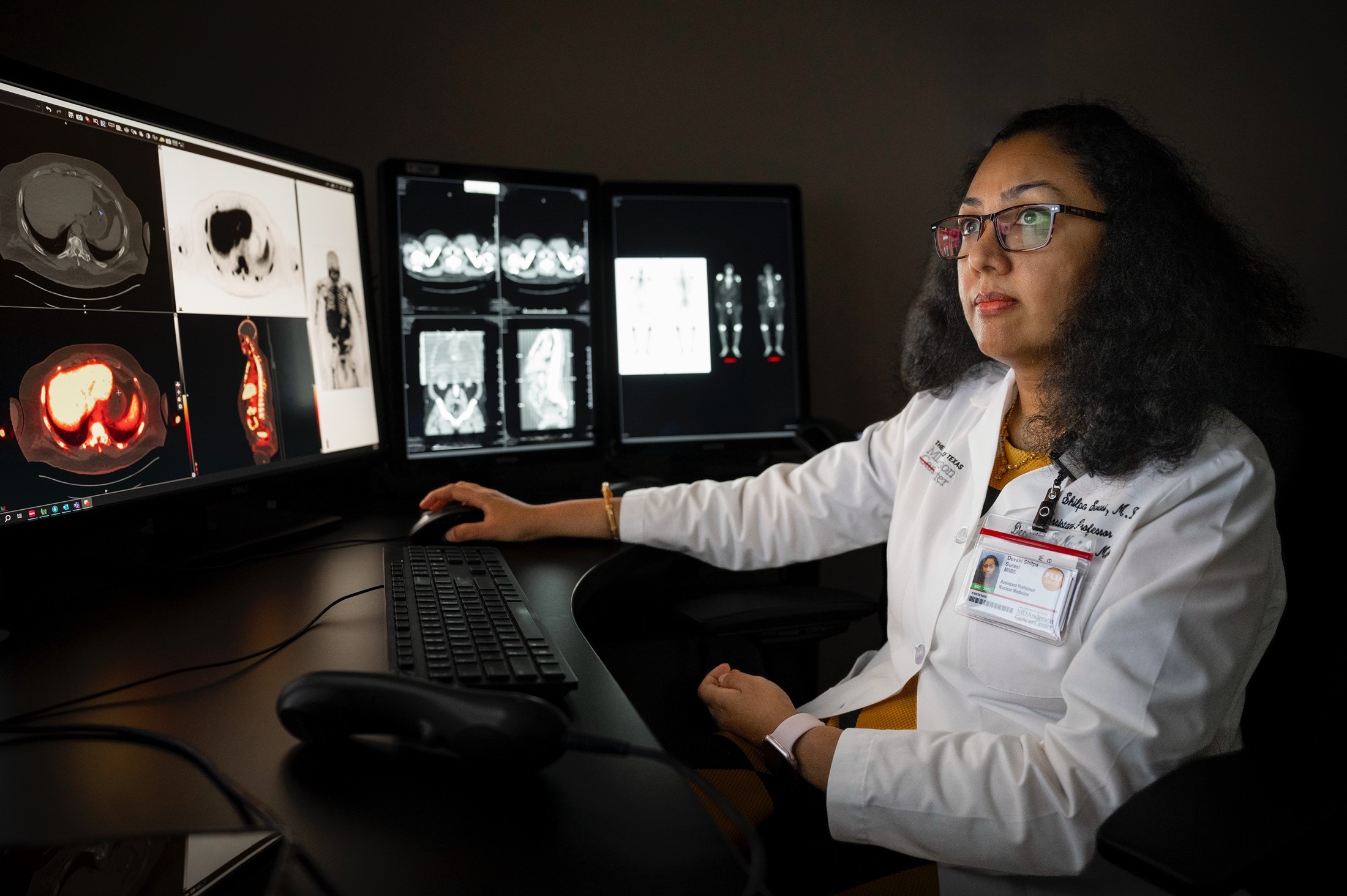- Diseases
- Acoustic Neuroma (14)
- Adrenal Gland Tumor (24)
- Anal Cancer (68)
- Anemia (2)
- Appendix Cancer (16)
- Bile Duct Cancer (26)
- Bladder Cancer (72)
- Brain Metastases (28)
- Brain Tumor (230)
- Breast Cancer (720)
- Breast Implant-Associated Anaplastic Large Cell Lymphoma (2)
- Cancer of Unknown Primary (4)
- Carcinoid Tumor (8)
- Cervical Cancer (158)
- Colon Cancer (166)
- Colorectal Cancer (114)
- Endocrine Tumor (4)
- Esophageal Cancer (44)
- Eye Cancer (36)
- Fallopian Tube Cancer (8)
- Germ Cell Tumor (4)
- Gestational Trophoblastic Disease (2)
- Head and Neck Cancer (8)
- Kidney Cancer (128)
- Leukemia (344)
- Liver Cancer (50)
- Lung Cancer (288)
- Lymphoma (284)
- Mesothelioma (14)
- Metastasis (30)
- Multiple Myeloma (100)
- Myelodysplastic Syndrome (60)
- Myeloproliferative Neoplasm (4)
- Neuroendocrine Tumors (16)
- Oral Cancer (100)
- Ovarian Cancer (174)
- Pancreatic Cancer (164)
- Parathyroid Disease (2)
- Penile Cancer (14)
- Pituitary Tumor (6)
- Prostate Cancer (146)
- Rectal Cancer (58)
- Renal Medullary Carcinoma (6)
- Salivary Gland Cancer (14)
- Sarcoma (238)
- Skin Cancer (296)
- Skull Base Tumors (56)
- Spinal Tumor (12)
- Stomach Cancer (64)
- Testicular Cancer (28)
- Throat Cancer (92)
- Thymoma (6)
- Thyroid Cancer (96)
- Tonsil Cancer (30)
- Uterine Cancer (80)
- Vaginal Cancer (16)
- Vulvar Cancer (20)
- Cancer Topic
- Adolescent and Young Adult Cancer Issues (20)
- Advance Care Planning (10)
- Biostatistics (2)
- Blood Donation (18)
- Bone Health (8)
- COVID-19 (362)
- Cancer Recurrence (120)
- Childhood Cancer Issues (120)
- Clinical Trials (632)
- Complementary Integrative Medicine (24)
- Cytogenetics (2)
- DNA Methylation (4)
- Diagnosis (232)
- Epigenetics (6)
- Fertility (62)
- Follow-up Guidelines (2)
- Health Disparities (14)
- Hereditary Cancer Syndromes (126)
- Immunology (18)
- Li-Fraumeni Syndrome (8)
- Mental Health (118)
- Molecular Diagnostics (8)
- Pain Management (62)
- Palliative Care (8)
- Pathology (10)
- Physical Therapy (18)
- Pregnancy (18)
- Prevention (914)
- Research (398)
- Second Opinion (74)
- Sexuality (16)
- Side Effects (608)
- Sleep Disorders (10)
- Stem Cell Transplantation Cellular Therapy (216)
- Support (402)
- Survivorship (322)
- Symptoms (184)
- Treatment (1790)
4 myths about chemotherapy
3 minute read | Published March 27, 2013
Medically Reviewed | Last reviewed by an MD Anderson Cancer Center medical professional on March 27, 2013
When newly diagnosed cancer patients are prescribed chemotherapy, they are understandably apprehensive.
The word "chemotherapy" evokes images of very ill people suffering through their cancer treatment. But we've made enormous strides over the last couple of decades that have minimized chemotherapy's side effects for many cancer patients.
My patients ask a lot of questions about chemotherapy. They want to know how their life will be impacted. Often, they have concerns about how they will feel and what they will experience.
Here are some of the biggest myths I hear about chemotherapy.
Myth #1: If my physician prescribes chemotherapy, it means my illness is terminal. Chemotherapy is one of the methods used for treating cancer, and may be combined with others, such as surgery and radiation.
The type of chemotherapy prescribed and frequency of administration depends on the type of cancer and is not indicative of a patient's outlook. In fact, chemotherapy is most often used as a preventive measure to prevent cancer from recurring at a later date and improve the odds of cure.
Myth #2: Chemo will completely disrupt my life. The drastic side effects that patients experienced many years ago are not as prevalent today, thanks to medical advances. Fatigue is the most common side effect, and can vary significantly from person to person.
Most often, the fatigue lasts for a few days after chemo, but, by and large, patients go on living their normal lives throughout treatment (including work), with some modifications to their diet and routine.
Patients also can receive treatment in a setting that's close to where they live and work.
Myth #3: Chemo is not worth it. Dealing with a cancer diagnosis requires making very personal choices, and every patient is unique. With the advances that we've made in chemotherapy, more and more people are surviving and thriving after cancer treatment. It might take some time to fully return to your old self after chemotherapy, but it's by no means the devastating experience it was decades ago.
Myth #4: A patient going through chemotherapy can contaminate others. Patients don't become toxic during chemotherapy. I'm frequently asked if a patient should sleep in another bedroom while going through treatment or use separate restrooms or take other precautions. It is perfectly fine to maintain your regular lifestyle.
That said, you should speak with your oncologist about precautions you need to take regarding contraception and sexual activity.
Better than expected
Many patients today complete their chemotherapy treatment and note that it wasn't as bad as they expected. We continue to make great strides in improving cancer care and helping our patients live more comfortably throughout their treatment.
Chemotherapy is most often used as a preventive measure to prevent cancer from recurring at a later date and improve the odds of cure.
Sunil M. Patel, M.D.
Physician





